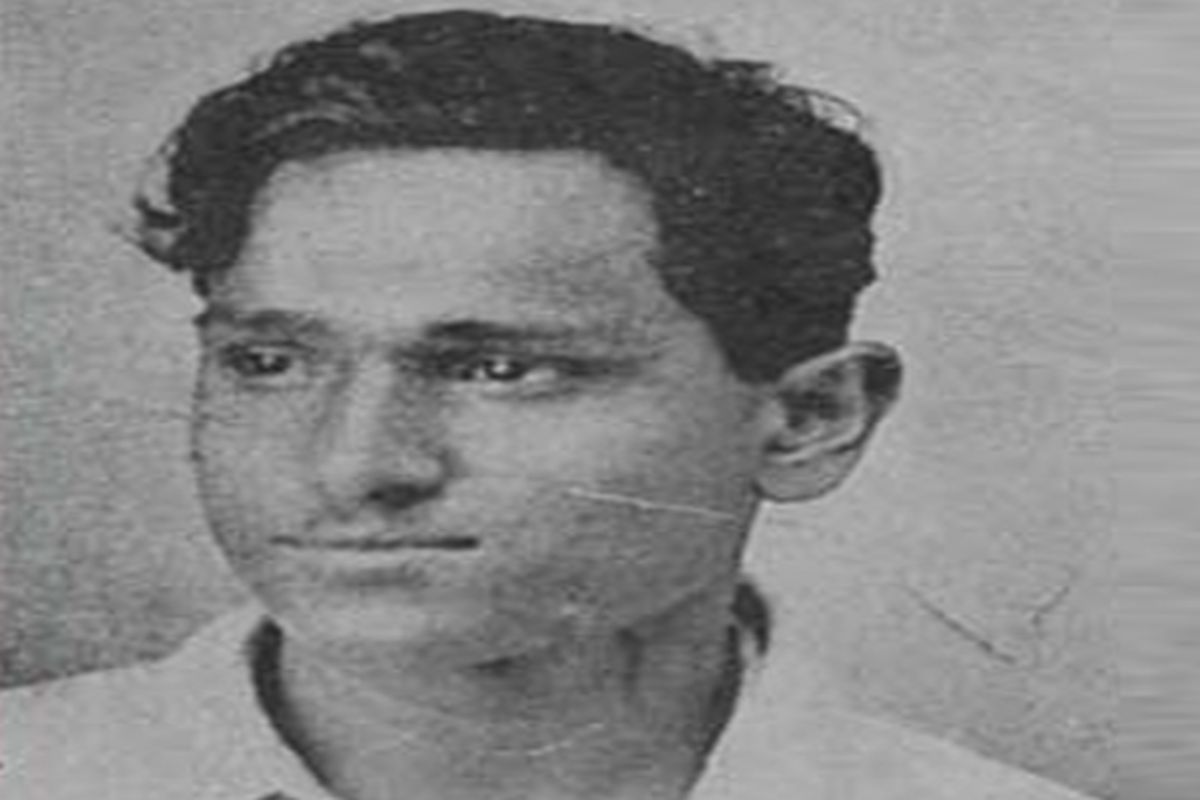Bhagat Singh’s kin expresses outrage over behind-bars portrait of Kejriwal
Expressing his outrage, Sandhu said an attempt has been made to compare Kejriwal with the legends.
Dutt, along with Bhagat Singh, exploded bombs in the Central Legislative Assembly in protest against ‘Defence of India Act, 1915’ proposed by the British to crackdown on revolutionary activists.

Indian Freedom fighter Batukeswar Dutt (Photo: Wikimedia Commons)
The Union Minister of State for Home, Nityanand Rai, at a programme in Patna, declared on Saturday that the Centre is planning to rename the Burdwan railway station after Batukeswar Dutt – a revolutionary and freedom fighter. The minister made the announcement while visiting Dutt’s Jakkanpur residence in old Patna.
Once, prior to India’s independence, the police jeeps of the British used to ply on the kachcha village roads, every now and then, hunting for Batukeswar, who had partnered Shaheed Bhagat Singh in exploding bombs at the Central Legislative Assembly in Delhi.
Describing Dutt’s sacrifice for the country, Rai said: “His revolutionary life, full of struggle, is a source of inspiration for the present generation of youths. He had sacrificed his life for the country without any lust for honour and prestige.”
Advertisement
Son of Gostha Bihari Dutt, Batukeswar was born on November 18, 1910, at Oari village located in Khandaghosh police station area in Burdwan (East). He graduated from Kanpur in Uttar Pradesh and became a close associate of revolutionary activists Chandrasekhar Azad and Bhagat Singh in 1924.
He was trained in making bombs as a member of Hindustan Socialist Republican Association. He along with Bhagat Singh exploded bombs in the Central Legislative Assembly in protest against ‘Defence of India Act, 1915’ proposed by the British to crackdown on revolutionary activists.
He was deported to the Cellular Jail in the Andaman & Nicobar Islands and after his release, he took part in the ‘Quit India Movement’ and was jailed for another term of four.
“After India won freedom, he got married in November, 1947 and remained as a dormant unsung hero as the nation never gave proper recognition to him and lived a poor life suffering from tuberculosis and died on 20 July, 1965,” said Madhusudan Chanda, Secretary of ‘Batukeswar Dutt Smritiraksha Committee,’ a forum struggling for Dutt’s recognition over the years.
The committee has set up an office at the ancestral house of Dutt that still has the underground cellar where Dutt and Bhagat Singh hid after the Delhi blast.
Advertisement